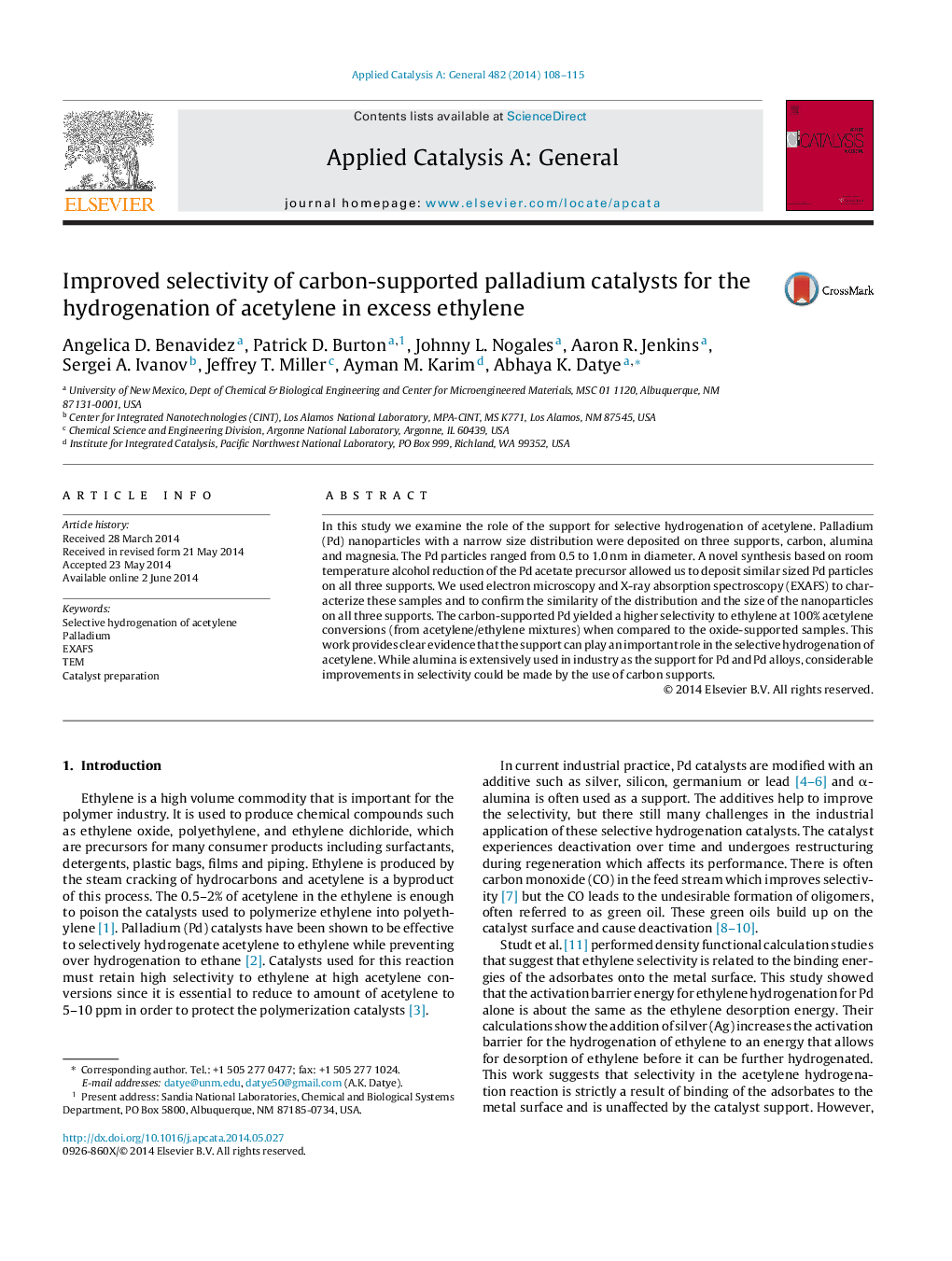| Article ID | Journal | Published Year | Pages | File Type |
|---|---|---|---|---|
| 39590 | Applied Catalysis A: General | 2014 | 8 Pages |
•Novel method of preparation ensures similar particle size.•EXAFS and AC-STEM confirm similar particle sizes.•Highest selectivity for acetylene hydrogenation seen on Pd/C.•Oxide supports such as MgO or Al2O3 lead to over hydrogenation.•Electronic properties of Pd influenced by the carbon support.
In this study we examine the role of the support for selective hydrogenation of acetylene. Palladium (Pd) nanoparticles with a narrow size distribution were deposited on three supports, carbon, alumina and magnesia. The Pd particles ranged from 0.5 to 1.0 nm in diameter. A novel synthesis based on room temperature alcohol reduction of the Pd acetate precursor allowed us to deposit similar sized Pd particles on all three supports. We used electron microscopy and X-ray absorption spectroscopy (EXAFS) to characterize these samples and to confirm the similarity of the distribution and the size of the nanoparticles on all three supports. The carbon-supported Pd yielded a higher selectivity to ethylene at 100% acetylene conversions (from acetylene/ethylene mixtures) when compared to the oxide-supported samples. This work provides clear evidence that the support can play an important role in the selective hydrogenation of acetylene. While alumina is extensively used in industry as the support for Pd and Pd alloys, considerable improvements in selectivity could be made by the use of carbon supports.
Graphical abstractFigure optionsDownload full-size imageDownload high-quality image (165 K)Download as PowerPoint slide
